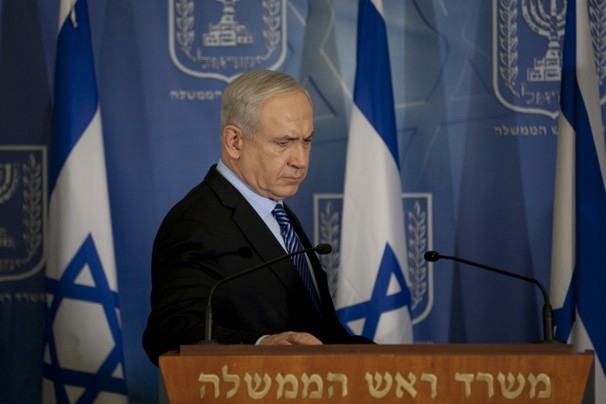
As the Israel Defense Forces continue strikes meant to weaken Hamas�s rocket-launching capabilities, more analysts are starting to wonder about the country that supplies many of those longer-range rockets: Iran. For at least two years, Mideast watchers have been trying to figure out how seriously to take�long-standing Israeli threats�that it would launch airstrikes against suspected Iranian nuclear sites. Now, some observers say that the Israel-Gaza fighting, which began Wednesday with a surprise Israeli airstrike on a senior Hamas figure, could make strikes on Iran more likely.
The logic behind this thinking is that Hamas is an Iranian proxy, and Hamas�s rockets serve as a deterrent to an Israeli strike. Historian�Walter Russell Mead explains: �If Israel succeeds in destroying most, if not all, of Hamas� arsenal, they could find themselves with a decent window of opportunity during which they will be able to act without having to worry about rockets raining down on their civilian population from Gaza. This window will not stay open forever.� The Wall Street Journal�s Gerald Seib sees a�similar possibility. Foreign Policy blogger Tom Ricks�suggests�that this might �portend� Israeli strikes against southern Lebanon, where Iran-sanctioned Hezbollah is based, although the memory of Israel�s disastrous month-long 2006 invasion suggests that Israeli leaders might worry that re-opening their northern front could be too costly and time-consuming.
The apparent successes of Israel�s Iron Dome missile defense systems would also seem to reduce some of the risks of Iranian, Hamas, or Hezbollah counter-attacks in the case of an Israeli strike. Of course, the cases for and against an Israeli strike are much bigger than just Hamas�s rocket capability and Israeli missile defense; many analysts believe a strike would set back Iranian nuclear development by perhaps as few as two years, while also potentially strengthening Iranian resolve to secure a nuclear weapon.
Israel�s Gaza strategy, at least, seems to have accepted the option of repeated short-term solutions � �mowing the grass,� as some analysts call it � over a permanent long-term solution. It�s possible, though perhaps remotely, that just as Israel seems to have accepted the idea of striking Hamas sites in Gaza every four years, so might its leaders warm to the idea of striking Iranian nuclear sites with some degree of regularity.
One piece of historical context worth considering is that, in 2010, Israeli Prime Minister Benjamin Netanyahu and�Defense Minister Ehud Barak�reportedly attempted to order the Israeli military to prepare for an imminent strike on Iran�but were thwarted by other senior officials. According to Israeli and U.S. news reports on the alleged incident, Netanyahu�s order did not go forward both over issues of authority and because Israeli military leaders did not believe they were capable of accomplishing the mission. Assuming the reports are accurate, the big question is whether or not the Israeli military still believes its capabilities are not up to the task.
Netanyahu�s�U.N. speech�was seen as his most recent push for the United States to take more aggressive measures with Iran, suggesting that he may believe the United States is better equipped to handle the mission than is Israel. If the Israeli military still does not believe it can successfully strike Iranian nuclear sites, then the debate over whether the Gaza crisis makes those strikes more likely is strictly academic.
The Iran Project is not responsible for the content of quoted articles.











